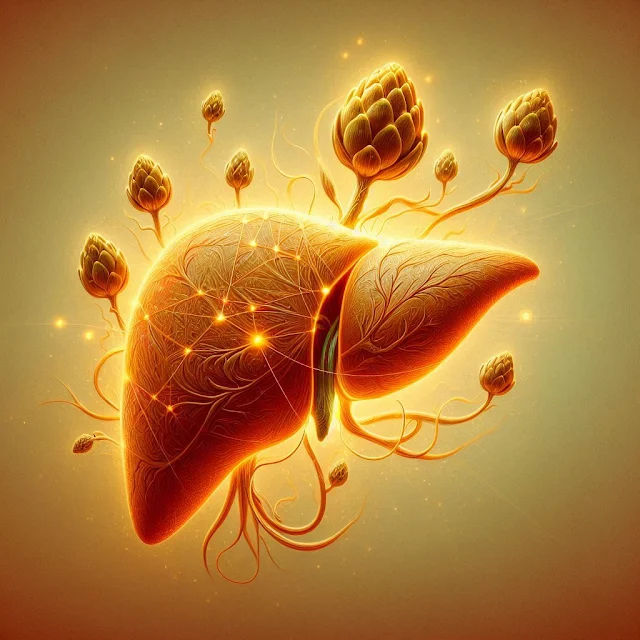Cholesterol – a word that can strike fear into the hearts of health-conscious individuals. But before you swear off all your favorite foods, let's explore the delicious world of cholesterol-lowering options! This article delves beyond artichoke hearts to unveil a variety of foods that can naturally support healthy cholesterol levels.
Understanding Cholesterol: A Balancing Act
The Good, the Bad, and the Fuzzy: Decoding Cholesterol Types
Imagine cholesterol as tiny molecules carried through your bloodstream. They're not inherently bad; in fact, our bodies need cholesterol for healthy cell function. However, there are two main types:
- LDL (low-density lipoprotein): Often referred to as "bad" cholesterol. When LDL levels are high, it can build up on artery walls, increasing the risk of heart disease.
- HDL (high-density lipoprotein): The "good" cholesterol acts like a janitor, picking up excess LDL and transporting it back to the liver for elimination.
Why High LDL Cholesterol Matters
Uncontrolled high LDL cholesterol is a silent threat, gradually contributing to plaque buildup in arteries. This narrowing of arteries, called atherosclerosis, can lead to serious health problems like heart attack and stroke.
A Culinary Tour for Heart Health: Cholesterol-Fighting Foods
Filling Up on Fiber: Nature's Sweepers for Cholesterol
Soluble fiber acts like a sponge in your digestive system, trapping cholesterol and ushering it out of the body. Here are some fiber superstars:
-
Oats: This breakfast staple is loaded with soluble fiber, which forms a gel-like substance in your gut, grabbing onto LDL cholesterol and preventing its absorption.
-
Beans: A nutritional powerhouse, beans are packed with soluble fiber. A bowl of lentils, black beans, or chickpeas can significantly contribute to your daily fiber intake and support healthy cholesterol levels.
-
Fruits and Vegetables: Don't underestimate the power of a colorful plate! Many fruits and vegetables, like apples, berries, and Brussels sprouts, contain soluble fiber to help keep your LDL in check.
Embracing the Good Fats: Monounsaturated and Polyunsaturated Fats
Not all fats are created equal. Monounsaturated and polyunsaturated fats can actually help lower LDL cholesterol while raising HDL cholesterol, the good kind. Let's explore some delicious sources:
-
Olive Oil: This Mediterranean staple is rich in monounsaturated fats. Drizzle it on salads, use it for cooking, or enjoy it with crusty bread for a heart-healthy treat.
Avocados: This creamy fruit is loaded with monounsaturated fats and fiber, making it a double whammy for cholesterol management. Enjoy avocado toast, add it to sliced tomatoes with a squeeze of lemon, or whip up some guacamole for a fun and healthy dip.
-
Fatty Fish: Salmon, tuna, mackerel, and sardines are swimming with omega-3 fatty acids, a type of polyunsaturated fat. Omega-3s have numerous health benefits, including lowering LDL cholesterol and reducing inflammation. Aim for two servings of fatty fish per week.
Plant Sterols and Stanols: Mimicking Cholesterol for a Healthy Swap
Plant sterols and stanols are naturally occurring plant compounds that structurally resemble cholesterol. Here's how they can benefit your heart health:
- Plant Sterol-Fortified Foods: Some foods, like yogurt, margarine, and orange juice, are fortified with plant sterols and stanols. These plant compounds compete with cholesterol for absorption in the gut, potentially leading to lower LDL levels.
Building a Heart-Healthy Plate: Combining Cholesterol-Lowering Foods
Now that you've explored a variety of cholesterol-fighting foods, it's time to put them together!
- Sample Meal Plan for Cholesterol Management:
- Breakfast: Oatmeal with berries and a sprinkle of nuts
- Lunch: Chickpea salad sandwich on whole-wheat bread with a side salad drizzled with olive oil
- Dinner: Salmon with roasted Brussels sprouts and quinoa
- Snacks: Apple slices with almond butter or a handful of mixed nuts
Remember, this is just a sample. There are endless possibilities for creating delicious and heart-healthy meals!
Dietary Considerations: Balancing Delicious with Nutritious
While these cholesterol-lowering foods are fantastic additions to your diet, it's important to remember moderation is key. Here are some pointers:
- Limit saturated and trans fats: Found in red meat, processed foods, and fried items, these fats can increase LDL levels.
- Be mindful of added sugars: Sugary drinks and desserts can contribute to weight gain, which can negatively impact cholesterol levels.
- Read food labels: Pay attention to saturated and trans fat content when choosing packaged foods.
Optimizing Your Cholesterol Journey: A Lifestyle Approach
The Power of Exercise: Your Partner in Cholesterol Control
Regular physical activity is a game-changer for cholesterol management. Aim for at least 150 minutes of moderate-intensity exercise or 75 minutes of vigorous-intensity exercise per week.
Managing Weight: A Crucial Factor for Heart Health
Maintaining a healthy weight is crucial for optimal cholesterol levels. Excess weight can contribute to higher LDL levels and lower HDL levels.
Conclusion: Taking Charge of Your Cholesterol Health
By incorporating a variety of cholesterol-lowering foods into your diet, maintaining a healthy weight, and engaging in regular exercise, you can take charge of your cholesterol health. Remember, a personalized plan created with your doctor is essential for optimal results.
FAQs:
I don't like oatmeal. Are there any other breakfast options for lowering cholesterol?
Absolutely! Try whole-wheat toast with avocado and eggs, or a smoothie with berries, Greek yogurt, and spinach.
What if I'm a vegetarian? Can I still eat a cholesterol-lowering diet?
Yes! Beans, lentils, tofu, and nuts are all excellent sources of plant-based protein and fiber, which can help lower LDL cholesterol.
Do I need to give up all my favorite foods?
Moderation is key! Enjoy your favorite treats occasionally, but focus on filling your plate with cholesterol-lowering options most of the time.
How long does it take to see results from a cholesterol-lowering diet?
It can take several weeks or months to see a change in cholesterol levels. Consistency is key!
Are there any supplements that can help lower cholesterol?
Certain supplements like psyllium fiber may offer some benefits, but it's crucial to discuss them with your doctor before starting any new supplements.
Sources








.jpeg)
.jpeg)